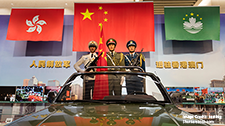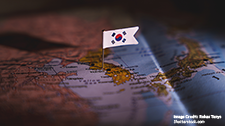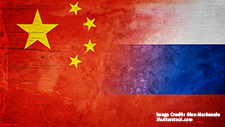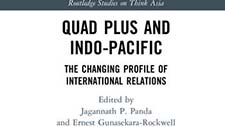-
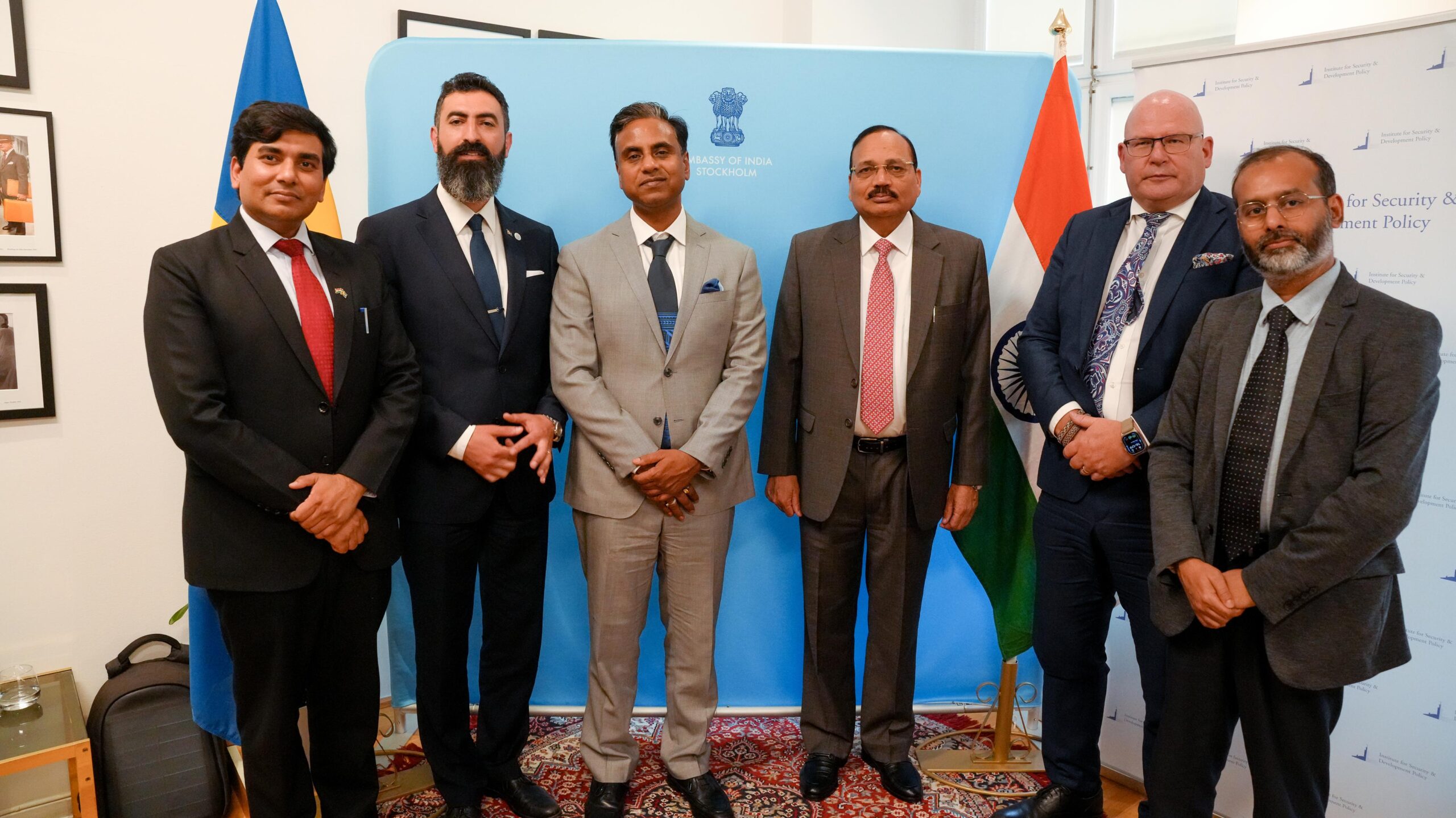
A Collaborative Event with the Embassy of India in Sweden on “Human Rights, Indian Constitution, and the Emergence of India as a Resilient Power”
A balance of autonomy and partnership may lead to new alignments and innovative collaborations that address global challenges, thereby enhancing both India’s and Sweden’s positions on the world stage. Understanding the respective domestic developments, progress, and evolving stature of these countries as maturing democracies, along with ongoing legal reforms and vital constitutional issues, including human rights issues in both countries, is integral to this regard. Sweden needs to learn from India, and vice versa. As mature democracies, their testimony to human rights, constitutional practices, and legal process holds strategic and democratic bearings. To facilitate such understanding, the Stockholm Center for South Asian and Indo-Pacific Affairs (SCSA-IPA) of the ISDP, in collaboration with the Embassy of India in Sweden, organised an event on “Human Rights, Indian Constitution, and the Emergence of India as a Resilient Power” on Monday, 7th July 2025. The keynote speaker of this event was Hon’ble Justice Shri Surya Kant, Judge, Supreme Court of India. This event witnessed a panel discussion on “India and Sweden: Learning the Democratic Experiences”, followed by an Interactive Session. See more details of the event here.
-

Safeguarding the Global Chip Supply: Lessons from PRC’s Technology Acquisition Tactics in Taiwan
This issue brief, co-authored by Niklas Swanström and Viktor Šimov, deals with how Taiwan’s technological advantage, especially in the semiconductor sector, serves as a key factor for deterring a Chinese invasion. However, they write, there are documented cases of the PRC using multiple strategies to acquire Taiwanese technologies to reduce its reliance on Taiwan and international supply chains, before possible military action. This issue brief outlines these strategies, which include industrial espionage, talent poaching, and the use of shell companies, investment channels, and joint ventures for technological appropriation or further cross-strait integration. Amid intensifying Chinese efforts to appropriate Taiwanese technology, the EU and other Western allies must draw strategic lessons from Taiwan to protect their supply chains and thereby increase their economic security, write Swanström and Šimov. Read and download the brief here.
-
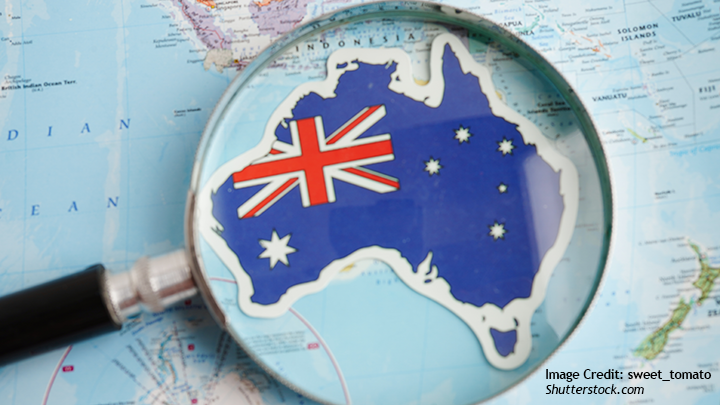
Safeguarding the Indo-Pacific Region: Insights from Australia on Maritime Security
In an era marked by rapid geopolitical transformation and unprecedented technological advances, maritime security in the Indo-Pacific has become a critical imperative for both national and regional stability. On April 8, 2025, the Institute for Security & Development Policy (ISDP), in collaboration with Murdoch University Study on Human Security and the Indo-Pacific, organized a talk with Dr. Thomas S. Wilkins on the topic Safeguarding the Indo-Pacific Region: Insights from Australia, India, and Japan on Human/Maritime Security. Dr. Wilkins is a Distinguished Research Fellow (non-resident) at The Japan Forum for International Relations and an Associate Professor in International Security at the University of Sydney, specializing in Asia-Pacific security affairs. This report summarizes Dr. Wilkins’ talk, which presented a comprehensive analysis of Australia’s strategic maritime environment. Its focus was on Australia’s evolving role, its complex threats, and the coordinated policy responses underway to secure its vast maritime domain. Read and download the report here.
-

The Dalai Lama: An Institution of Global Significance
Jagannath Panda writes that the Dalai Lama’s insistence that his successor be chosen through spiritual—not political—processes, along with international attention, has made Beijing’s plans uncertain. He further writes that the CCP’s campaign is a calculated, long-term effort to erase the spiritual authority of one of the world’s most important religious figures. The international community must not turn a blind eye, writes Panda. The question of the Dalai Lama’s succession is no longer a purely Tibetan issue. It is a test of the world’s willingness to defend religious freedom, cultural autonomy, and the right of a people to determine their own spiritual future. The West, especially the U.S. and Europe, and democratic allies in Asia must take a clear stand, argues Panda. This means, he writes, articulating a Tibet policy that addresses Beijing’s interference in Tibetan affairs. And it means rejecting any Chinese-appointed Dalai Lama as illegitimate. Read this piece here.
-

China’s Military-Civil Fusion in Space: Strategic Transformations and Implications for Europe
Fatoumata Diallo writes that under the direction of the Central Commission for Integrated Military and Civilian Development (CCIMCD), Xi’s Military-Civil Fusion (MCF) strategy has sought to effectively break down institutional barriers between civilian and military sectors. It leverages civilian innovation for military modernization; accelerates dual-use and multi-use technology in critical emerging fields, and encourages private sector participation in defense-related R&D. As such, MCF goes well beyond the traditional notion of “dual-use”, writes Diallo. She further argues that it in fact deliberately blurs the lines between military, civilian, and commercial domains, creating an integrated ecosystem designed to advance China’s goals on multiple fronts: strengthening military capabilities, driving technological self-reliance, fueling economic growth, and expanding China’s global influence. Diallo writes that the space domain has become a key area where this fusion strategy plays out. Through MCF, China is harnessing commercial innovation to expand its space capabilities, with private companies now playing a pivotal role in developing dual-use technologies that advance national security interests. These shifts carry important implications for the European Union (EU), raising urgent questions about strategic autonomy, technological resilience, and Europe’s ability to shape the norms and power dynamics of the evolving space domain. Read this policy paper here.
-

Will South Korea Distance Itself from the US Under President Lee?
Jagannath Panda writes on the challenges the new South Korean President faces in the Indo-Pacific. He writes that South Korea has recently undergone a significant power transition, with Lee Jae-myung taking office as President, signaling a potential recalibration of its foreign policy. This change in leadership could usher in a long-anticipated reshaping of how Seoul navigates an increasingly complex geopolitical landscape. Traditionally, South Korea has prioritized its alliance with the United States. Still, under Lee’s presidency, questions arise about how this approach might evolve, particularly concerning China, Japan, and the broader Indo-Pacific strategy. Read the full piece here.
-

From Domination to Co-Creation: How Taiwan Sustains Semiconductor Leadership through Adaptive Industrial Policy
Amid heightened geopolitical tensions, global supply chains are experiencing an unprecedented realignment. Semiconductors have emerged as a strategic asset, an industry where Taiwan has cemented global leadership. Its tech expertise, and robust democracy underpin Taiwan’s strategic value and reliability. While the EU has turned to large-scale subsidies to localize semiconductor production, Taiwan’s success is not the product of any single policy instrument, but reflects a long-term trajectory of institutional foresight, public-private synergy, and adaptive international engagement. As Taiwan’s experience shows, building lasting technological capacity requires more than subsidies. It is about crafting coherent ecosystems, where both state and market roles evolve in tandem. As like-minded partners, closer cooperation between Europe and Taiwan can strengthen mutual resilience. This issue brief by Zsuzsa Anna Ferenczy and Yingfen Lin examines how Taiwan’s model serves as a blueprint for building economic resilience and technological leadership in a hyper-connected world. Read and download the issue brief here.
Latest Publications
China’s Military-Civil Fusion in Space: Strategic Transformations and Implications for Europe
Key takeaways China’s Military-Civil Fusion (MCF) strategy is a multi-purpose tool to enhance national power, accelerate technological innovation, and drive industrial and economic development. MCF has reshaped China’s space […]
Will South Korea Distance Itself from the US Under President Lee?
South Korea has recently undergone a significant power transition, with Lee Jae-myung taking office as President, signaling a potential recalibration of its foreign policy. This change in leadership could usher in a […]
G7 Strategy for Countering Russian Information Operations in the Indo-Pacific Region: A Framework for Enhanced Multilateral Coordination and Response
Russian Foreign Information Manipulation and Interference (FIMI) operations across the Indo-Pacific have evolved into sophisticated, multi-domain campaigns that systematically exploit political tensions and technological innovations. These operations demonstrate added complexity […]
- From Foe to Partner? Russia's Rapprochement with the Taliban and its Regional Implications
- Mongolia’s Pivot to Central Asia and the Caucasus: Strategic Realignments and Regional Implications
- Has the West "Lost" Azerbaijan?
- Kyrgyzstan and Tajikistan Resolve Final Border Dispute: A Historic but Fragile Peace
